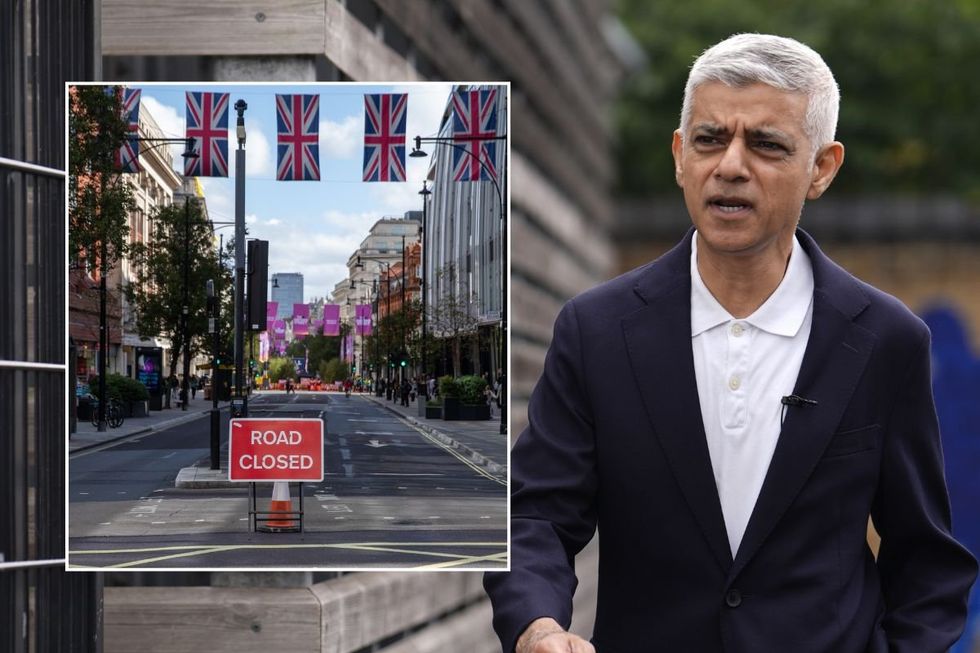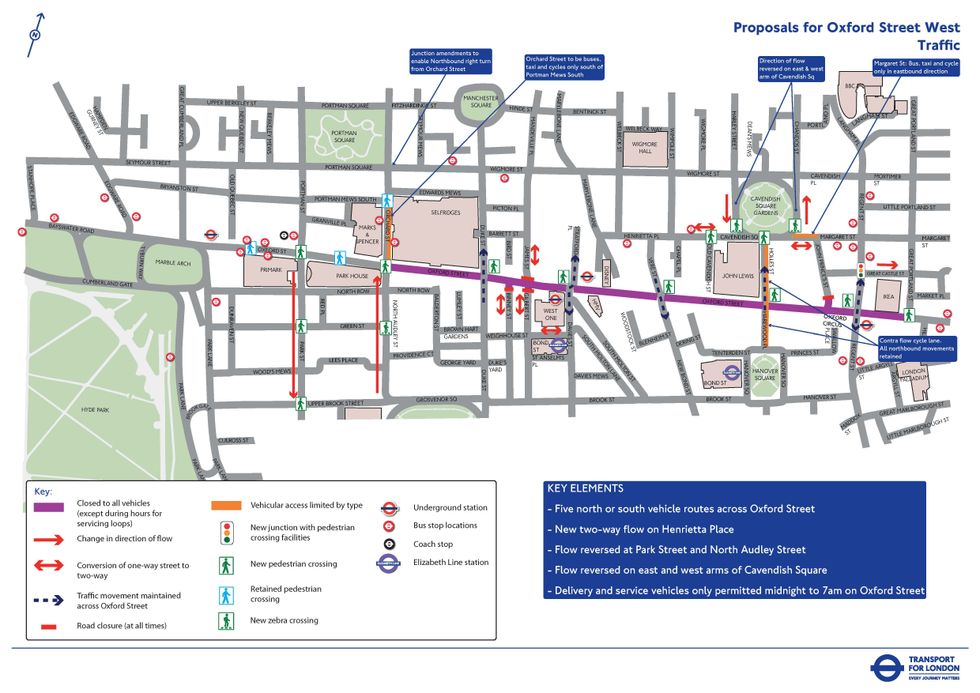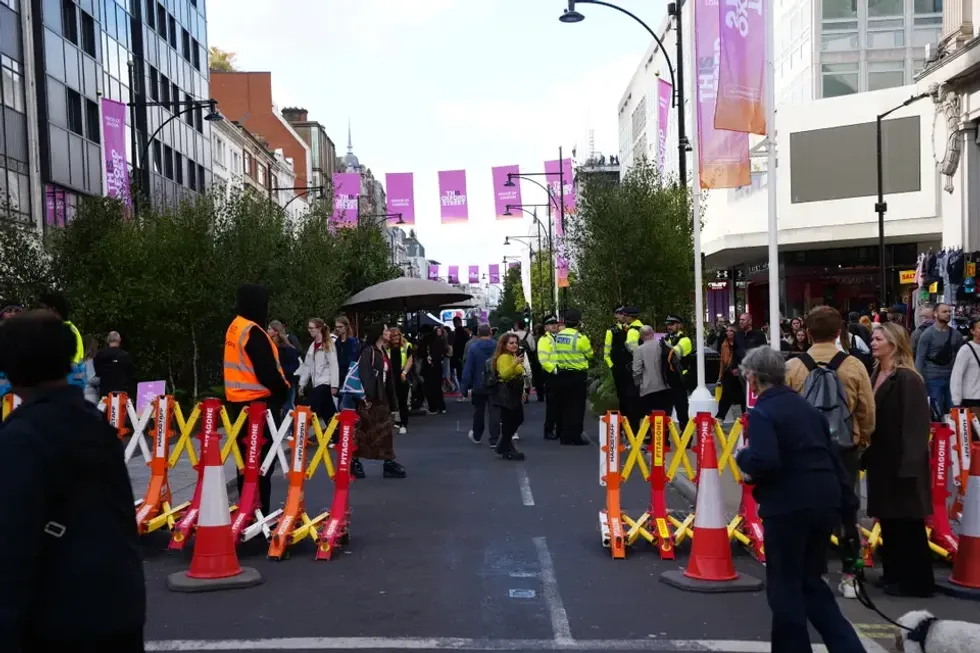Sir Sadiq Khan has rolled out the latest steps in his plan to pedestrianise one of the busiest shopping districts in London, which would outlaw the use of vehicles.
Mayor Sadiq Khan and Transport for London have published detailed proposals regarding plans to pedestrianise Oxford Street.
A consultation has been launched to hear opinions from people living, working and visiting Oxford Street and how a potential pedestrianisation project could work.
The “carefully modelled proposal” will see all vehicle traffic banned from Oxford Street between Orchard Street and Great Portland Street.
The section of Oxford Street would be closed to private motorised vehicles, buses, taxis and private hire vehicles, cycles, scooters and pedicabs, although emergency services would have access at any time.
To support businesses and retailers, servicing vehicles would be able to access the stretch of road between midnight and 7am.
The Mayor and TfL stated that traffic is expected to use alternative routes, while new and wider pedestrian crossings would ensure public safety.
Sir Khan said: “We need urgent action to give the nation’s high street a new lease of life and make it an attractive international destination once again.
READ MORE: Sadiq Khan could fast-track plans to ban cars from Oxford Street with ‘bold’ pedestrianisation plan

“A reimagined Oxford Street can bring the world to London and showcase the best of London to the world, and I’m pleased that we’re now moving ahead with our exciting plans to regenerate this iconic area, backed by the vast majority of Londoners and businesses.”
The Labour Mayor called on everyone to respond to the consultation to transform Oxford Street “into a place Londoners and the whole country can be proud of”.
To deal with disruption to buses and taxis, the proposals outline new bus stops, taxi ranks, and drop-off locations near the pedestrianised area to ease concerns.
Several changes are also proposed for bus routes, including diversions, alternative termination stops and re-routing certain buses.
LATEST DEVELOPMENTS
- Millions of drivers face massive vehicle repair costs as motorists fear expensive MOT issues
- Nissan Leaf added to £3,750 EV grant as UK-made car offers huge range and ‘real-world benefits’
- Pubs offering free drinks to drivers next month as police launch massive road crackdown

A traffic-free day was trialled along Oxford Street earlier this year, and was supported by a number of pop-ups from popular brands and organisations.
The event saw foot traffic rise 45 per cent compared to the week before, while more than two-thirds of stores reported similar or higher sales than on a typical Sunday.
Claire Mann, chief operating officer at TfL, said the pedestrianisation of the area would create a “safer and more pleasant overall experience”.
“We look forward to hearing the public feedback on these proposals and, subject to the consultation results, delivery of the scheme could begin in the second half of 2026,” Ms Mann added.

Cycling will not be allowed on the section between Orchard Street and Great Portland Street, despite the Mayor’s active travel targets.
However, Sir Khan and TfL will work with Westminster City Council to support the further development of cycling infrastructure in the surrounding area.
Dee Corsi, Chief Executive at New West End Company, said: “Today’s consultation launch is an important step towards delivering Oxford Street’s transformation, forming part of what must be a long-term strategic approach to the revitalisation of the whole street.
“We will continue to engage closely with the Mayor and TfL to ensure that the proposed traffic modelling outlined in the consultation reflects the ambitions and needs of local businesses, whilst maintaining the momentum necessary to realise the West End’s full potential.”
Our Standards:
The GB News Editorial Charter







Follow